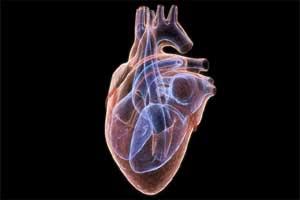- Home
- Editorial
- News
- Practice Guidelines
- Anesthesiology Guidelines
- Cancer Guidelines
- Cardiac Sciences Guidelines
- Critical Care Guidelines
- Dentistry Guidelines
- Dermatology Guidelines
- Diabetes and Endo Guidelines
- Diagnostics Guidelines
- ENT Guidelines
- Featured Practice Guidelines
- Gastroenterology Guidelines
- Geriatrics Guidelines
- Medicine Guidelines
- Nephrology Guidelines
- Neurosciences Guidelines
- Obs and Gynae Guidelines
- Ophthalmology Guidelines
- Orthopaedics Guidelines
- Paediatrics Guidelines
- Psychiatry Guidelines
- Pulmonology Guidelines
- Radiology Guidelines
- Surgery Guidelines
- Urology Guidelines
Researchers develop faster,cheaper cardiac imaging test for developing countries

Prague, Czech Republic : Researchers in the UK and Peru have developed a faster and cheaper cardiac imaging test that can be used in developing countries, according to the results of the INCA-Peru study presented today at EuroCMR 2017.1 The scan is three times faster, less than one-fifth of the cost, and changed clinical management in 33% of patients.
Cardiovascular magnetic resonance (CMR) is the gold standard for diagnosing many cardiovascular diseases. It is used to measure the structure and function of the heart, and to assess scarring on the heart muscle after a heart attack to predict if another will occur.
Lead author Dr Katia Menacho, a cardiologist from Peru and PhD student at University College London (UCL), UK, said: "In Peru just two public hospitals offer CMR - each performs 12 scans on one day a week. Five private hospitals provide CMR at $USD 600-800 per scan. Public hospitals without CMR refer to the private sector and it takes up to three months to approve the paperwork, delaying diagnosis and treatment."
The Impact of Non-invasive CMR Assessment (INCA)-Peru study was set up to develop and test an ultrafast CMR protocol for wider uptake in Peru. The study was an international academic and political collaboration between Peru, the UK, the USA and Brazil.
An initial protocol was developed at UCL which reduced average scan time from 60 to ten minutes. It was successfully used in Thailand to assess cardiac and liver iron overload in patients with thalassaemia major.2 The protocol was adapted for the INCA-Peru study by adding the contrast agent gadolinium which is critical for the detection of cardiac fibrosis and infarction, and the diagnosis of various cardiovascular diseases. It was tested in a pilot study of 50 patients at UCL and each scan took 15 to 20 minutes.
For the current analysis, the ultrafast CMR protocol using contrast was tested over two days at two hospitals in Peru, accompanied by training for local cardiologists, radiologists, and technicians. The study included 100 patients with suspected cardiomyopathy and 11 healthy controls. All of the patients were under local cardiology care and had never been assessed by CMR.
There were no scan-related complications. All scans were diagnostic, although two patients had a repeat scan (one due to failure of contrast delivery and one to confirm unexpected cardiac amyloidosis). Gadolinium based contrast agents were administered to 95% of patients (5% of patients had iron overload).
Each ultrafast CMR scan took 18 minutes on average and cost $USD 150. The most common underlying diagnoses were hypertrophic cardiomyopathy (21%), non-ischaemic dilated cardiomyopathy (17%), and ischaemic cardiomyopathy (11%), plus 20 other diagnoses including tumours, congenital heart disease, myocardial iron overload, amyloidosis, vasculitis, and apical thrombus.
CMR had an impact on the clinical management of 33% of patients. CMR revealed a new, unsuspected diagnosis in 20% of patients, leading to a complete change in management. In 30% of patients no further cardiac testing was needed (coronary angiography, computed tomography, cardiac biopsy).
"We showed that this ultrafast CMR protocol can be used to accurately diagnosis patients leading to changes in clinical management," said Dr Menacho. "The protocol takes one-third of the standard scan time at a fraction of the cost."
INCA-Peru researchers will follow-up the patients for two years to evaluate the impact of diagnosis by ultrafast CMR on long-term morbidity and mortality.
Dr Menacho said: "Accurate diagnoses provided by CMR have reduced morbidity and mortality in Europe and we hope to find the same in Peru. If we show long-term benefits on prognosis we will seek support from the Peruvian government to provide ultrafast CMR at more hospitals in Peru. The accurate diagnosis provided by CMR should lead to more targeted patient care and better outcomes."

Disclaimer: This site is primarily intended for healthcare professionals. Any content/information on this website does not replace the advice of medical and/or health professionals and should not be construed as medical/diagnostic advice/endorsement or prescription. Use of this site is subject to our terms of use, privacy policy, advertisement policy. © 2020 Minerva Medical Treatment Pvt Ltd